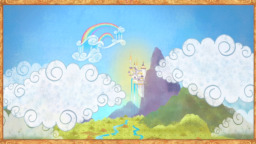
October 22, 1914
At the advice of my beloved Elizabeth, I have begun to keep a journal of my thoughts and experiences as a soldier in the Royal Scots Fusiliers. Many of my squad-mates also seem to have taken to journal writing, but they seem to be doing it out of some inflated idea of grandeur, as if the pages they write will soon be in the pages of schoolbooks. I wish I could have such optimism, I’m only writing as a way to try to keep my sanity. I feel that if I can get my thoughts out of my head and onto the paper, they won’t be stuck in my mind, slowly ravaging me from the inside-out.
In my first month in the trenches I have made several acquaintances. Wilfred, also a man of 20, whose family has a cereal farm in the Scottish country side. After the war he hopes to go back to his family and continue the farm for the next generation. Isaac, 19, from Edinburgh, who wants to attend the University of Edinburgh’s School of Engineering when he returns to civilian life, and Felix, 17, from Elgin, Moray, who wishes to join the Catholic Priesthood after the war.
Life in the trenches can best be described as...dynamic - long hours of quietness interjected with moments of chaotic fighting on some days, endless gunfire and shelling the next. One quickly learns to live without cycle and uniformity out here. Being ready for anything at a moments notice is a mindset that one will eventually fall into should they spend enough time out here. I know I have. You must if you want to keep your sanity.
Death is viewed in a very paradoxical way, out here. We are surrounded by it, yet we choose to marginalize it, for the sake of our daily functionality. Every now and again a man who is standing one moment will be on the ground, dead, the next, having stood too high at the wrong moment and being struck down by a sniper on the other side of No Man's Land. A clean, quick way to go...they are the lucky ones. Most don’t die so well. A less accurate bullet...being in the wrong place at the wrong time when a shell falls...the dreaded chlorine gas, I’ve seen many men die these ways. It’s slow...painful...messy, and those who are rescued and given medical treatment only have a marginally better chance at survival, their pain often just extended. If anything, medicine has become an act of cruelty, rather than an act of kindness.
Yet once they died, they met the same fate as those who died quickly - a shallow grave. Out of sight and out of mind...and life for the living continues. Such is life in war time.
